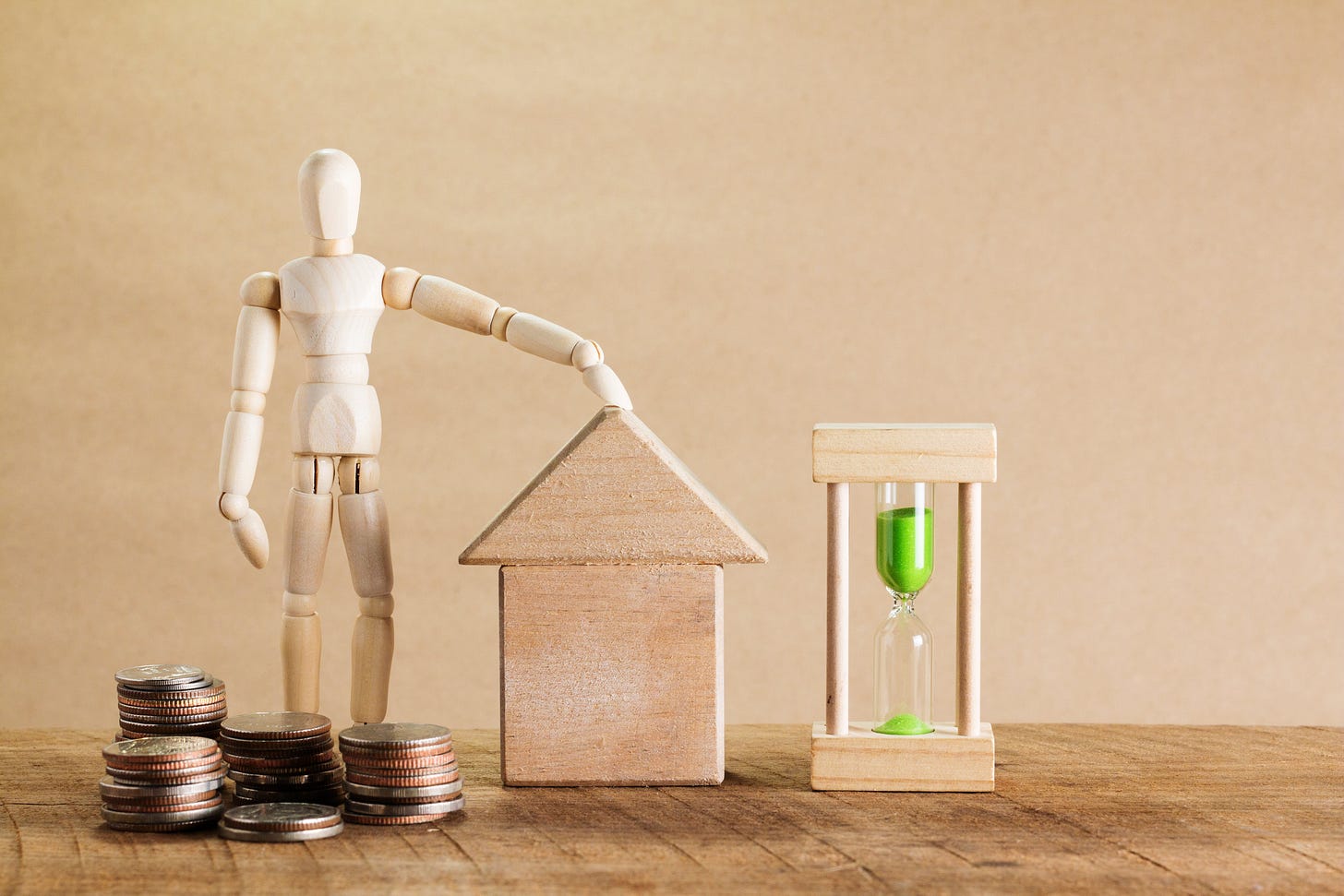There was once a young carpenter, who, having been apprenticed at a young age, had already grown tired of his trade before he was approaching middle age. He sawed and sanded sullenly, and felt as if he slaved away always for someone else’s gain. He didn’t have a house of his own, you see, and he resented working on the houses of others. One day, he asked the master craftsman to release him from his apprenticeship. He’d had enough and wanted to seek his fortune by some easier and more convenient means. The boss was sorry to see him go, for he was fond of the young man, despite his sullen ways, but he said that he would let him go. All he asked is that the young man could build just one more house before he left.
The young carpenter agreed, but it was easy to see that his heart was not at all in his work. He was careless and hurried, eager to get on the road quickly. He resorted to using inferior materials and taking shortcuts wherever possible to try and speed things along and to save money.
When the young carpenter decided he had finished the house just enough, he invited the master craftsman to inspect the house, as he was required to. But the master craftsman simply handed the front door key back to the carpenter and said, “This is your house. It is my parting gift to you, after all of your many years of work.”
The young carpenter was shocked and mortified. If he had only known he was building his own house, he would have done it all differently.
(I do not know where I first heard this story, but I share it with gratitude to the lineage through which it came.)
If we knew the world we were building, would we build it differently?
There are many facets and avenues that we could take with this question, but today we are particularly considering where and how we spend out money.
Have you ever considered the fact that every time you pay for something, you are essentially buying into a particular kind of future.
Whenever we make a purchase, we may not realise it, but we are casting a vote for that product. Every time you buy something, that scanned barcode becomes a fragment of data which is contributing to decisions made at all levels of the commercial chain.
Once the barcode has been scanned, that data is read and evaluated by the sellers who will deem it as either worthwhile distributing or not worthwhile distributing. Depending on how many people bought an item, sellers will make decisions about whether they will order more or less of that product.
That data is then relayed to the producers, for whom demand is everything. If a product is no longer in high enough demand, it may become financially inviable (or not profitable) for them to continue making that product. In most cases, if it is not worth their while (by which I mean: if they are not making profit), producers will be either forced to stop making that product, or they will simply choose to stop making it.
Thus, every time you buy a product, you are endorsing it - and the seller.
But what can one person do? For people who might feel despondent and exclaim ‘what difference can one vote make?’, I respond with this - that your vote can make a difference because you are part of a wider community who is waking up to the reality that we have been living in a subliminal illusion of economic imprisonment.
We live in a political climate of ‘tactical voting’, where people choose between two or three parties who have the biggest presence because - if they don’t vote for their least abhorred of that selection - they imagine that their vote will be be wasted. Imagine if all of the tactical voters out there really followed their hearts. I wonder how different the situation would be?
There is, in most instances, the possibility of direct impact through only a critical few. All that is required, is for enough people (a critical few) to change their vote and there would be sufficient detrimental impact on the profit margin of the company to peacefully leverage it into non-existence.
So, I wonder, where do you buy your goods from? What do you purchase? How does it feel when you buy from those sellers/ when you buy those things?
A new approach to “try before you buy”
Perhaps this week you might try pausing before you click at the online checkout or when you have an item in your hand and ask yourself:
Do I need this?
How much do I want this?
What value will this bring me?
What is the hidden cost of this product?
Is this the right place to buy this from?
Could I get this somewhere else and, if so, how much more would it cost me?
What is convenience worth to me?
Do I feel good about making this purchase?
Do I feel guilt about making this purchase?
Who am I helping by making this purchase?
Who or what am I supporting by making this purchase?




